(Excerpt from article authored by Pauline Reimer published in the Society of Actuaries Stepping Stone Magazine**)
BEFORE THE INTERVIEW
(**As this article was originally written to guide actuarial candidates, feel free to generalize these suggestions to your individual career pursuits as applicable)
Resume
Prepare a polished resume. Here are my recommended categories, in order:
- Professional Designations and Associations:
List all designations and committee memberships with dates. If still sitting for exams, this category is called “Actuarial Status”: List all exam parts passed and Associateship date, if applicable. - Professional Experience:
In reverse chronological order, ie, most recent experience first, list all company names, locations, dates of employment, last title, and job descriptions (with separate bullets for each responsibility). - Education:
Include degree(s), institution(s), locations(s), graduation date(s), major and minor, honors/awards (including GPA/SAT scores, if impressive and relatively recent). - Computer Skills:
Include software, languages and operating systems. - Miscellaneous (optional):
Include foreign languages, hobbies, interests (if diversified), citizenship status, etc.
Note: Including an “Objective” is unnecessary and even at times disadvantageous.
Connectivity
Timing is everything. As a result, you must be as accessible as possible to take advantage of an opportunity. If you can’t be reached, the company may interview the next qualified person who is available. If you do not own a mobile phone, borrow or rent one. Set up a private email, even if you have one at work. Frequently check your voicemail, text messages, and email messages, and respond promptly.
Preparation
In “The Art of War,” Sun Tsu indicated that the battle was won before it was fought – in the preparation. Practice is the key to success in anything you want to accomplish. (Remember the first time you learned to ride a bike?) Many people find that using a tape recorder or video recorder is a very helpful tool in preparation for the interview. Interviewers expect candidates to have done their homework. Research the company’s website and related internet search sites. Review the company’s history, financial statements, lines of business, locations of offices, etc. Be careful not to ask the interviewer a question whose answer is stated on their website.
Prepare the information needed for completing the application at the interview. You will likely need: The names and contact info of your references, dates of graduation and schooling, employment history (including dates), names and contact info of former/present supervisors, as well as your social security number. Make sure the references on your list will speak glowingly of you. Notify your references in advance that they may be contacted.
Letters of Reference
Because it is often difficult for employers to obtain reliable references of any sort, it is a major plus to have in your possession a letter, or letters, from prior employers or past performance appraisals. Letters should include superlatives like “best” or “most” and words like “hardworking”, “ethical”, “trustworthy”, and “dependable”. The letter should also state that they would hire you again or welcome the chance to work with you again. Include their name, email address, and phone number on it for further contact if needed. Also prepare copies of any type of awards or certificates of achievement that may play a role in a prospective employer gaining some insight into you.
THE INTERVIEW
Getting Ready
Get a good night’s sleep and make sure you eat before you go on an interview. Do not take any medications or drink alcoholic beverages that will impair your behavior; you want to be alert and show your best side. Bring a professional-looking leather folio, which should include a nice pen and note pad, and which will keep the multiple copies of your resume neat and crisp. Plan to arrive a few minutes early, but no more than ten minutes early. You may want to take a trial run before you go if you are not sure where it is, and don’t be afraid to ask for directions when you set up the appointment. Never be more than two minutes late. If you are running late, call the company to let them know. (If you are using a recruiter, alert the recruiter that you are running late.) Make sure to apologize for your tardiness in the initial phone call and again immediately upon meeting each interviewer in person.
Attire
You never get a second chance to make a first impression!
The ideal way to dress for an interview is business formal, even if the interviewing company is business casual, unless there is a specific request by the hiring company to dress business casual. If dressing formally poses a problem (e.g., you are going/coming directly from your current employer), it is acceptable to wear very nice business casual (e.g., for males: a light colored, long sleeve cotton button-down shirt and dark slacks, and maybe a sports jacket or vest, but no tie), as long as you address the issue immediately at the beginning of the interview and apologetically explain to each interviewer why you had to dress casually and that you appreciate them being so understanding about the situation. The one thing NOT to do is attempt to compromise by mixing business formal and business casual; this results in an unprofessional appearance.
Here are my recommendations for business formal attire:
Male — Business formal
- Business suit (navy blue or charcoal grey faint pinstripe preferred)
- Starched white shirt
- Silk tie, color-coordinated print
- Jewelry, any worn visibly besides a watch should be limited to professional items (e.g., college ring or wedding band)
Female — Business formal
- Business Suit (two- or three-piece dark skirted suit preferred)
- If blouse is worn, white is ideal
- Jewelry, appropriate to the outfit (e.g., pearls or refined necklace/earrings, and avoid multiple earrings)
- Makeup and nail polish, applied in a professional and subdued manner
Greeting
Greet the interviewers, including their assistants, by offering a firm handshake, while maintaining excellent eye contact.
Application
Complete the application with the same level of care that you would a work assignment. Be neat when filling out the application. Make sure you complete all the necessary information accurately and completely, even if you have a resume. Honesty is essential. Since 9/11, most companies use outside firms to verify information, including dates, salaries, education, diplomas and degrees. A potential employer will most likely not hire someone who has written false information on his/her resume or application, even if the candidate was ideally suited to the position. If you are using an agency, it’s just as important to be totally honest with them, too. Most applicants fill in the “salary desired” box with “open.” Avoid rambling, wordy responses. Stick to the point and make your answers clear and crisp. Try not to use improper language, slang, or esoteric abbreviations or acronyms.
Body Language
When you sit (upon invitation), make sure your posture is erect, and give your undivided attention to each interviewer. Do not fidget with jewelry, your hands, or knickknacks on the interviewer’s desk. Maintain good eye contact throughout the duration of the interview, which shows sincerity, high self-esteem, and good interactive people skills.
Attitude
A “what’s in it for me?” attitude can be a turn-off. Stating that money is your primary motivation will not be well-received. Your interviewer will get the impression that you will probably leave them as soon as you are offered more money elsewhere. Refrain from discussing sick leave, vacation, time off, benefits, etc. before you are offered the position. When the subject of salary comes up (and always wait until it is brought up), the best way to handle the very delicate and sometimes uncomfortable subject of money is to ask if they have a range they are considering. “I would like to be paid whatever the position is worth” is also a good answer if you’re asked for a specific response. If you are really pressed for an expected salary, simply state your current salary and bonus (mention if you expect a performance review or promotion soon), and leave the rest open.
Being very positive and enthusiastic on the interview is invaluable. In many instances, candidates who didn’t possess the ideal qualifications have been selected over more qualified ones purely due to the enthusiastic attitude they exhibited on the interview. Never ask a question or make a statement that implies a negative feeling or doubt regarding the position or company, its stability, future, etc. Bragging or appearing as a “know-it-all” is also a turn-off. Do, however, stress achievements. Avoid jokes, especially off-color ones. Never speak “ill” of a former employer.
Etiquette
Refrain from smoking, chewing gum, or wearing excessive perfume or colognes. Turn off all your electronic devices (phone, iPad, blackberry, etc.) immediately before you enter the interview.
Dining
If the interview process includes breakfast, lunch or dinner, keep the menu simple and avoid messy, hand-held, or hard to eat foods, such as fried chicken or a set of ribs. Don’t order the most expensive item on the menu. Refrain from initiating ordering alcoholic beverages; if the interviewer orders one, then ordering a glass of wine is acceptable. Watch your table-manners and remember to be polite to the server, as well as to the other members of your party.
Exiting and Follow-Through
At the conclusion of the interview, ask the interviewer for his business card so you can follow up with a thank you card. Always smile and end the interview with a good, firm handshake, thanking them for the opportunity. It is also acceptable to ask the interviewer what his/her timeframe is for filling the position.
AFTER THE INTERVIEW
Providing Feedback to Recruiter
If you went through a recruiter, call them immediately after the interview to review the highlights of the meetings; share with the recruiter any problems that occurred. They will be able to conduct a more beneficial follow-up call to the hiring authority if they have all the information as to how the interview progressed. Once the recruiter obtains feedback, they will guide you whether or not writing a thank you note is recommended.
Thank You Notes
A thank you note is sometimes not necessary, e.g., if the company calls you back immediately for the next stage or if you are using a recruiter who advises it’s not imperative. However, if you do write one, make sure it is timely, comprehensive and specific to that interview, not simply a “quick and dirty” or off-the-shelf version. Thank them for taking the time to speak with you and include the day of the interview. You might also want to mention something they will remember about you, especially if they interviewed a lot of people or are going to interview more. Write the reasons you think you are qualified for the job and how you could contribute to their organization. Describe why you are impressed with their organization and why the company and position are of interest to you. Use this note to say some of the points you wished you had said on the interview, but may not have had the opportunity.
Closure
I hope these suggestions will help make the interview process more successful for you. If the interview does not go as well as you hoped, don’t dwell on it. Let it go, but always try to improve your style for future interviews. Try to obtain as much feedback as possible as to how you performed on the interview and in what areas you need improvement. Strongly consider hiring a presentation/communication coach, especially if you find that you are well-qualified for jobs but are not securing offers.



